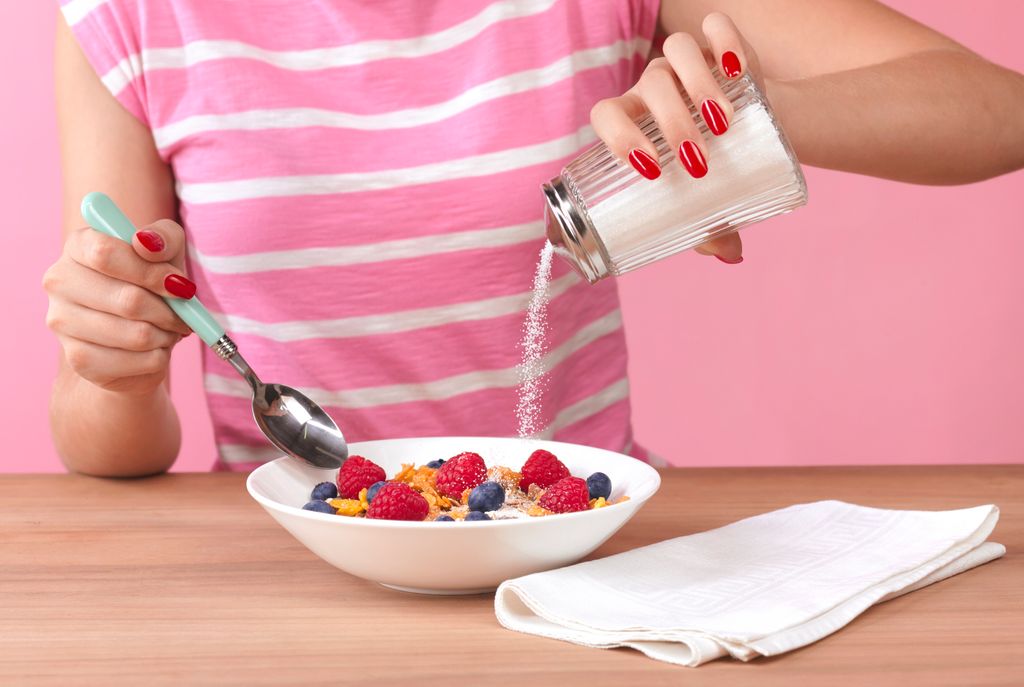The experts never stop confirming that reduce sugar consumption in our diet It’s a good idea. And it is, as confirmed to us Isabel Sancheznutritionist at Blua de Sanitas, mainly because helps prevent health problems such as obesity, type 2 diabetes and heart disease. “In addition, reducing sugar intake will benefit us when it comes to control weight“, in improving energy levels, improving metabolic health and we will also obtain benefits in our dental health,” he details.
It is currently present in many processed products, which makes it easier to ingest without people being aware.
A food with a very bad reputation
For some time now, from a nutritional point of view, sugar has become an almost demonized food. The Sanitas doctor points out that the main reason is precisely the link between its consumption and the health problems mentioned above. “Likewise, it is currently present in many processed productswhich makes it easier to ingest without people being aware. Its ability to generate energy spikes followed by fatigue affects the imbalance of insulin levelsand it also worsens appetite regulation,” explains the doctor, who adds that she believes it is advisable to be aware of this to reduce your intake on a regular basis.
Nevertheless, Salena Sainznutritionist and founder of Naturae Nutrición, tells us that we cannot demonize sugar, nor be extremists, “nothing happens if we take a homemade dessert on specific days, preferably if it is shared. This is a good way to end an after-dinner meal if we like to enjoy a sweet touch,” he comments.
How to reduce sugar consumption in the diet?
We are clear that we must limit its consumption, but how can we easily reduce the consumption of sugar in our diet?
- “First of all, reading food labels and choosing low sugar options. It must be taken into account that there are foods that, in and of themselves, contain sugar in their composition, so it is interesting to distinguish whether the sugar is added or not,” explains the Sanitas expert.
- In second place, reduce sugary drinks and preferably opt for water or infusions. “There are often people who are used to drinking soft drinks or juices, if necessary I recommend that they replace them with sugar-free versions, or better yet, water with fruit infusion, sugar-free tea or turmeric latte, which is milk with turmeric and a little black pepper,” says Salena Sainz.
- Thirdly, Isabel Sánchez proposes incorporate more fresh fruits and vegetables in meals provides a natural sweet flavor and essential nutrients.
- Finally, cook at home and use spices such as cinnamon or vanilla to give flavor helps avoid the use of refined sugars.
To limit sugar consumption, you can start by opting for healthy substitutes such as fruits, nuts and natural yogurt.
Make gradual changes
The ideal, in the opinion of the founder of Naturae Nutrición, is to make changes gradually. “Radically eliminating sugar from our diet can be counterproductiveWhen consumed, the body produces dopamine and intervenes in our body as if it were a reward for the brain. Therefore, its elimination will only make the craving for this substance greater,” he details.
And he gives a concrete and very practical example. “What you can do, for example, if you are used to drinking coffee or tea with two tablespoons of sugar, is try to reduce the amount little by little, so the first week you would take one and a half tablespoons, then one, and so on until not need it,” he comments. Another good option is replace sugar with other spices or natural ingredients to sweeten such as for example cinnamon or vanilla.
What if you have a very sweet tooth?
We know that it is an especially complicated task for people with a sweet tooth. What would the experts recommend in this specific case? What strategies can they use to try to limit sugar consumption in their daily lives? “To limit sugar consumption you can start by choosing healthy substitutes such as fruits, nuts and natural yogurt. It is also important to learn to read labels to identify hidden sugars and plan meals in advance to avoid less healthy choices,” says the Sanitas expert, who adds that it is important to reduce sugar gradually and also stay hydrated. “Finally, if we follow a balanced and healthy diet, it is possible to have a small indulgence occasionally, since it would not be relevant to our health in general,” he concludes.
Should artificial sweeteners be taken?
In Salena Sainz’s opinion, however, it is not advisable to opt for the artificial sweeteners. “Although a priori they may seem like a good alternative, their consumption will ultimately only increase the desire for sugar. Furthermore, another of its drawbacks is that They sweep away part of our intestinal flora, which weakens our immune system, which is why, in any case, I would use natural sweeteners like stevia”recommends.
Avoid obsessing
Salena Sainz does want to insist on an idea: “It is not advisable to restrict ourselves from eating, but in the case of eating at home it is advisable look for options that satisfy us more such as foods rich in protein and healthy fats, eating fresh fruit and snacks healthy such as nuts or vegetable crudités, or changing a sweet breakfast for a salty one,” he clarifies.
If we eat outside the home because we have no other alternative, or simply because we feel like it, the nutritionist recommends avoid syrups, sauces, sweets and caramelizations. “It is better to select more natural products and let the flavor of the raw material be the protagonist,” he adds.
Sometimes we confuse thirst with hunger or a craving for sweets. Staying hydrated prevents unnecessary sugar consumption
Other useful tips to eat less sugar
Not only is what we eat important to reduce sugar, it is also necessary drink enough water. “Sometimes We confuse thirst with hunger or a craving for sweets. Staying hydrated prevents unnecessary sugar consumption,” says Sainz.
And maybe you hadn’t thought about it, but sleeping well is also essential, because lack of sleep can increase appetite, especially for foods high in sugar. Furthermore, it is important to know that blood glucose spikes, which produce inflammation, are interrelated with the consumption of sugars that the body demands when we are stressed. “A stressful lifestyle affects eating, so it is important to find moments to relax and accompany this reduction in our sugar threshold with the practice of sports and other healthy habits,” concludes Sainz.


